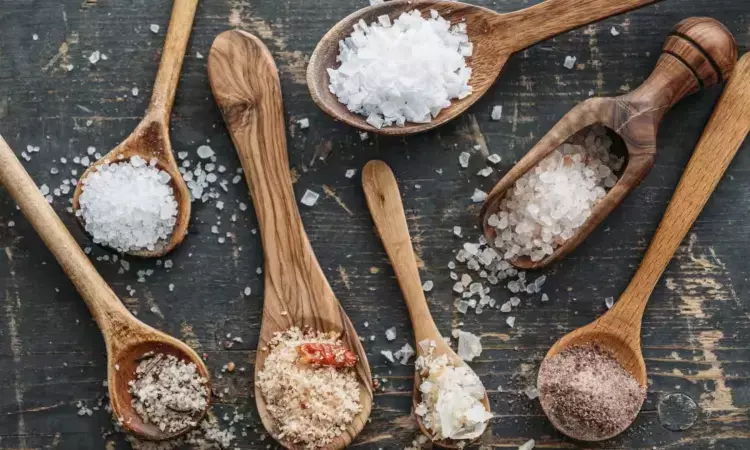- Home
- Medical news & Guidelines
- Anesthesiology
- Cardiology and CTVS
- Critical Care
- Dentistry
- Dermatology
- Diabetes and Endocrinology
- ENT
- Gastroenterology
- Medicine
- Nephrology
- Neurology
- Obstretics-Gynaecology
- Oncology
- Ophthalmology
- Orthopaedics
- Pediatrics-Neonatology
- Psychiatry
- Pulmonology
- Radiology
- Surgery
- Urology
- Laboratory Medicine
- Diet
- Nursing
- Paramedical
- Physiotherapy
- Health news
- Fact Check
- Bone Health Fact Check
- Brain Health Fact Check
- Cancer Related Fact Check
- Child Care Fact Check
- Dental and oral health fact check
- Diabetes and metabolic health fact check
- Diet and Nutrition Fact Check
- Eye and ENT Care Fact Check
- Fitness fact check
- Gut health fact check
- Heart health fact check
- Kidney health fact check
- Medical education fact check
- Men's health fact check
- Respiratory fact check
- Skin and hair care fact check
- Vaccine and Immunization fact check
- Women's health fact check
- AYUSH
- State News
- Andaman and Nicobar Islands
- Andhra Pradesh
- Arunachal Pradesh
- Assam
- Bihar
- Chandigarh
- Chattisgarh
- Dadra and Nagar Haveli
- Daman and Diu
- Delhi
- Goa
- Gujarat
- Haryana
- Himachal Pradesh
- Jammu & Kashmir
- Jharkhand
- Karnataka
- Kerala
- Ladakh
- Lakshadweep
- Madhya Pradesh
- Maharashtra
- Manipur
- Meghalaya
- Mizoram
- Nagaland
- Odisha
- Puducherry
- Punjab
- Rajasthan
- Sikkim
- Tamil Nadu
- Telangana
- Tripura
- Uttar Pradesh
- Uttrakhand
- West Bengal
- Medical Education
- Industry
Salt Substitution Reduces Stroke Recurrence and Mortality: SSaSS Trial Highlights Cost-Effective Prevention Strategy

China: A recent randomized clinical trial has highlighted the potential health benefits of replacing regular salt with a salt substitute in individuals with a history of stroke. The study, published in JAMA Cardiology, found that using a salt substitute proved to be a safe intervention. It significantly lowered the risk of recurrent stroke and mortality, reinforcing its role as a cost-effective strategy for stroke prevention.
Stroke is a leading cause of disability and death worldwide, with high sodium intake being a well-established risk factor for hypertension, which in turn contributes to stroke recurrence. Given the widespread consumption of salt in daily diets, replacing it with a lower-sodium alternative could have significant public health implications. Considering this, Xiong Ding, School of Public Health, Wuhan University, Wuhan, China, and colleagues aimed to assess the impact of salt substitutes compared to regular salt on recurrent stroke incidence and mortality in patients with a history of stroke.
For this purpose, the researchers conducted the Salt Substitute and Stroke Study (SSaSS), an open-label, cluster-randomized clinical trial in 600 northern Chinese villages. The prespecified subgroup analysis included patients who self-reported a hospital diagnosis of stroke. Data were analyzed between November 2023 and August 2024. Participants were assigned to use either a salt substitute, composed of 75% sodium chloride and 25% potassium chloride by mass, or regular salt. The primary outcome measured was the incidence of recurrent stroke.
The study revealed the following findings:
- After excluding 5,746 individuals without a baseline history of stroke, 15,249 patients were included (mean age: 64.1 ± 8.8 years; 45.9% women and 54.1% men).
- Over a median follow-up of 61.2 months, the mean reduction in systolic blood pressure was 2.05 mm Hg.
- A total of 2,735 recurrent stroke events were recorded, including 691 fatal and 2,044 nonfatal cases.
- The risk of recurrent stroke was significantly lower in the salt substitute group compared to the regular salt group (RR: 0.86), with a 30% relative reduction in hemorrhagic stroke.
- A total of 3,242 deaths were reported, with mortality rates significantly lower in the salt substitute group (RR: 0.88), including a 21% relative reduction in stroke-related deaths.
- No significant difference was observed in the risk of hyperkalemia between the groups (RR: 1.01).
The researchers found that the analysis of the SSaSS trial showed that using salt substitutes instead of regular salt reduced recurrent stroke and mortality rates without increasing hyperkalemia risk in stroke survivors. As a cost-effective dietary intervention, it offers significant health benefits and has the potential to shape global public health strategies for stroke prevention.
"With widespread adoption and long-term adherence, salt substitution could play a crucial role in enhancing secondary stroke prevention and improving cardiovascular health worldwide," the researchers concluded.
Reference:
Ding X, Zhang X, Huang L, et al. Salt Substitution and Recurrent Stroke and Death: A Randomized Clinical Trial. JAMA Cardiol. Published online February 05, 2025. doi:10.1001/jamacardio.2024.5417
Dr Prem Aggarwal, (MD Medicine, DNB Medicine, DNB Cardiology) is a Cardiologist by profession and also the Co-founder and Chairman of Medical Dialogues. He focuses on news and perspectives about cardiology, and medicine related developments at Medical Dialogues. He can be reached out at drprem@medicaldialogues.in


